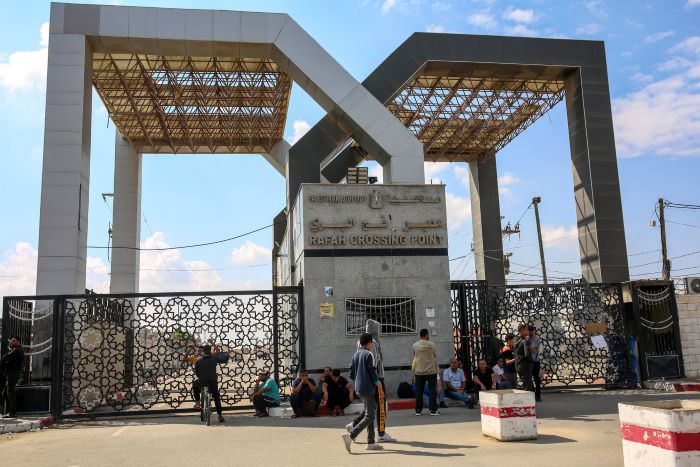BT shares slump after FTSE 100 company reports drop in revenue
BT shares opened lower by 3.9 per cent this morning after the company posted a decline in revenue for its first quarter. The company reported total revenue of £5.05bn in its first quarter of trading, a two per cent decline from the same period in 2023 and slightly south of consensus estimates. The giant said [...]


BT shares opened lower by 3.9 per cent this morning after the company posted a decline in revenue for its first quarter.
The company reported total revenue of £5.05bn in its first quarter of trading, a two per cent decline from the same period in 2023 and slightly south of consensus estimates.
The giant said the drop was due to a decline in legacy contracts, reduced low-margin sales and a contraction in its business unit.
However, Britain’s biggest telecoms company, said it saw a one per cent year on year increase to £2.06bn in adjusted earnings before interest, tax, depreciation and amortisation (EBITDA), in the three months ended 30 June.
This growth was driven by its efforts and stringent cost controls, including lower staff costs, which helped mitigate the revenue shortfall.
Profit before tax stood at £520m, a three per cent decrease, as the revenue decline was largely offset by a reduction in reported operating cost.
BT achieved a record fibre build, passing over 1m premises in the quarter and bringing its total footprint to 15m, including 4.2m rural sites.
But Openreach broadband losses hit 196,000 in the quarter, slightly higher than expected, due to competition from altnets and a challenging new housing market.
“Government growth policies and the construction revolution are likely to benefit BT by increasing the number of homes eligible for broadband connections, helping to mitigate broadband line losses,” said Matt Dorset, equity research analyst at Quilter Cheviot.
“BT appears to be in a stronger position than competitors like Vodafone to capitalise on any changes in planning regulations,” he added.
Luigi Bucci, associate vice president analyst at Moody’s Ratings, said that, as the full fibre rollout advances, broadband losses should decelerate but there is still a risk of higher losses.
“This is because the first-mover competitive advantage of altnets will gradually phase out. We anticipate that competition will remain sustained, as altnets have expanded their full-fibre coverage across the country. Their focus is shifting from network expansion to customer acquisition in an effort to strengthen their business model,” he explained.
The FTSE 100 company has reiterated its full year 2025 financial guidance, forecasting revenue growth of 0-1 per cent, EBITDA of around £8.2bn and free cash flow of £1.5bn.
BT’s first female boss Allison Kirkby has been on an offensive to steer the telecom giant in a new direction.
She has pledged to cut £3bn in costs by the end of 2029 as the company moves past the peak of its capital expenditure in broadband.
She said: “We’ve made a solid start to the year, with excellent growth in both fibre build and connections, and increased EBITDA.
“Openreach continues to build at pace and with even more efficiency, passing the milestones of 5m connections and – just yesterday – 15m premises built. In Consumer, the widespread availability of FTTP and 5G combined with our new EE propositions has contributed to an improved trend in our customer base, in what remains a very competitive market.”
Kikrby added: “In Business, we also saw improved trends, as we continue to modernise our portfolio and our operations towards a simpler business, delivering secure, cloud-based connectivity and communication services for all our customers.
“Our ongoing cost transformation contributed to EBITDA growth, and more than offset the expected revenue declines in Consumer and Business in the quarter. There is much more to do to simplify BT Group and deliver for our customers. We remain on track to deliver our financial outlook for this year and our cash flow inflection to c. £2bn in 2027 and c. £3bn by the end of the decade.”
In May, BT reported full year revenue of £20.8bn, up slightly against the £20.7bn reported for the previous year, while pre-tax profit plunged 31 per cent. But shares rose as BT said its multi-billion pound investments in 5G and fibre technology had started to pay dividends.
The trading update follows news that major BT shareholder Patrick Drahi built his 25 per cent stake in the company by borrowing heavily, using substantial loans, and financing derivatives.
His French telecoms group Altice secured a £1.5bn margin loan against its stake in BT as part of its debt-funded global growth strategy.
In June, the richest man in Latin America, Carlos Slim, took a 3.2 per cent stake in BT, in what analysts said signalled a vote of confidence BT.
The stock has risen nearly nine per cent year to date.



